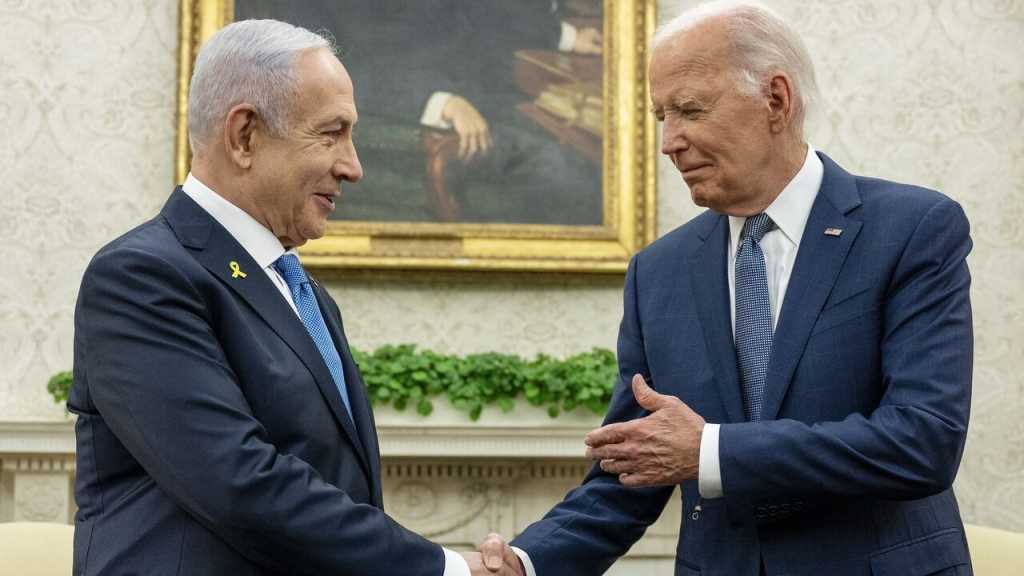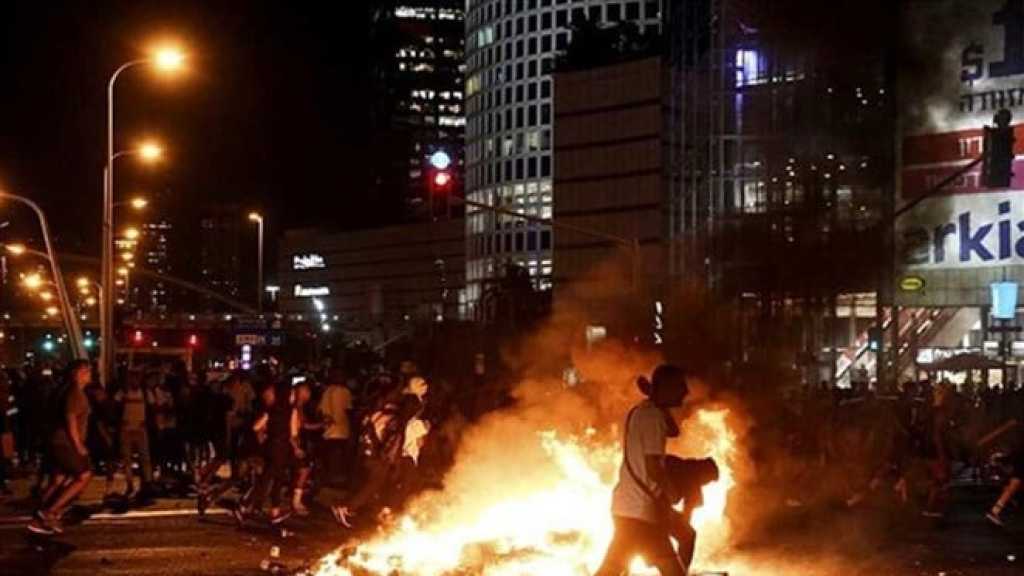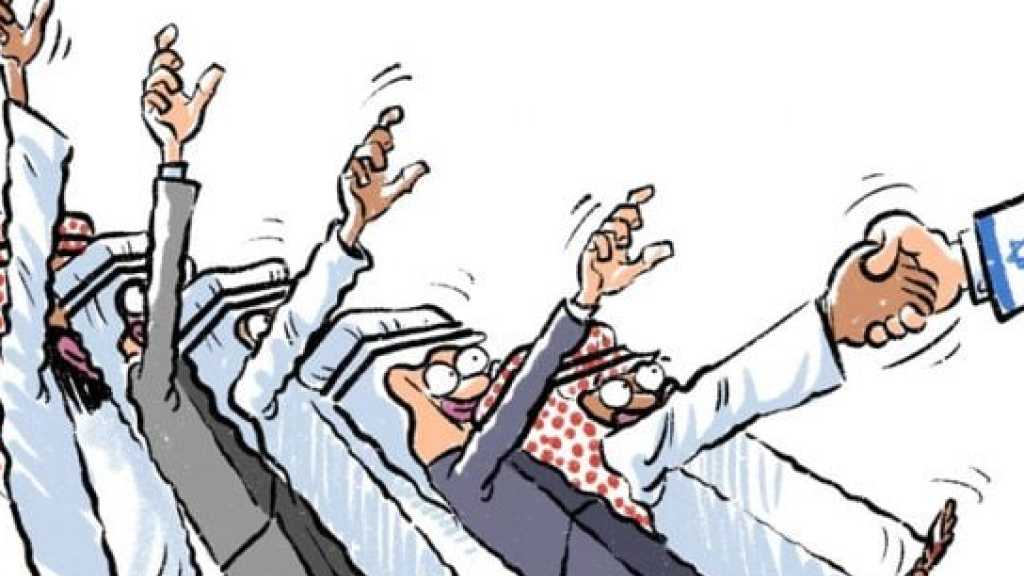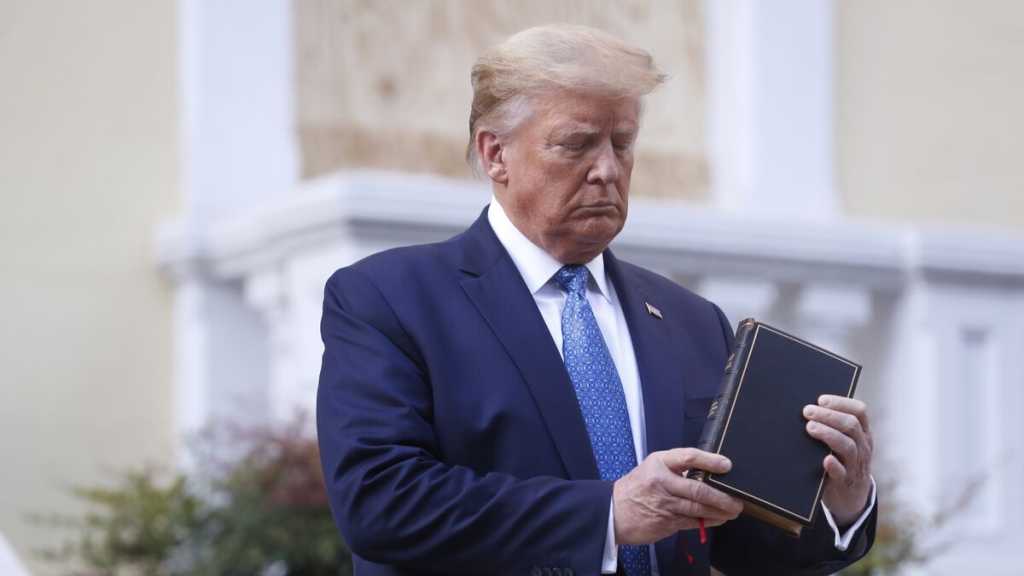The Resistance 9 Years on...Constant Deterrence
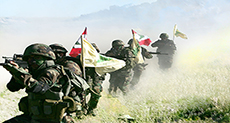
Latifa Husseiny
A few meters away from occupied Palestine, a group of mujahidin [revolutionaries] remain present on a land that witnessed the defeat of the most powerful Zionist myths. In this place, where there is no room but for the language of glory written with blood, ink, and thought, sits one of the commanders of the Islamic Resistance, watching the settlements of the enemy present before him...

He evokes the words of his leader, Sayyed Hassan Nasrallah, who asked his comrades in jihad to be prepared for the day of the [liberation of] the al-Jalil [Galilee], expecting the event to occur soon: "It is only a matter of time, and a state of alert is constant".
Although nine years have passed since the aggression in July 2006, it has not caused the resistance fighters to forget any details of the 33 day war...they hold memories of close-up battles and combat with the Zionists, and feelings of sacrifice and devotion overflow for the path that they have chosen: passion for the struggle, for the sake of the homeland and its liberation from the hands of the usurpers, while remaining aloof from the pleasures and comforts of this world.
With repose unaffected by the chaos of internal Lebanese politics, Hadi, the commander in the Islamic Resistance, sits in waiting for us...the meeting begins, after he calmly welcomes us...the discussion is open and its focus is military-related. As Israeli espionage aircraft hover in the skies, Hadi begins his talk... [in his mind] the July war is present in all its aspects. What is the state of our resistance just short of a decade after the divine victory in August 14, 2006?
Hadi says "From the first day after the end of the war, Hizbullah entered the stage of deriving lessons from the war, and began studying what occurred in the battlefield, this carried out by a secret committee specialised in battlefield affairs, and so the military leadership carried out tremendous efforts in order to study the results of the war and the victory it achieved within it, so they can later include these findings in their combat methods in preparation for the next confrontation with "Israel", while at the same time, the enemy was also being subjected to the investigations of the Winograd Commission, and assessed the causes of failure, and the performance of its land, air, and naval units, these investigations being carried out at the level of the Chief of Staff of the "Israeli" army".
According to Commander Hadi, the resistance factored into its equations, from the moment the aggression on Lebanon ceased in the year 2006, the possibility that the Zionists will launch surprise air raids and attacks, especially after the enemy returned its land, air and naval forces back to training camps, and this is what it did with the forces it used to invade Lebanon, whereby it took them back to the camps in the occupied Golan Heights, on standby for any command to launch new operations, and therefore it was announced on August 14, 2006 that hostilities have ceased, but not that the war itself has ceased, and it may be renewed at any time.
Hizbullah has not let up throughout the past nine years, as Hadi explains, as it moved - since 2006 - to carefully look into the weaknesses of the enemy, while in parallel, study the gaps that should be avoided in the future, and based on these it prepares itself, on alert for the moment the fighting breaks out again.
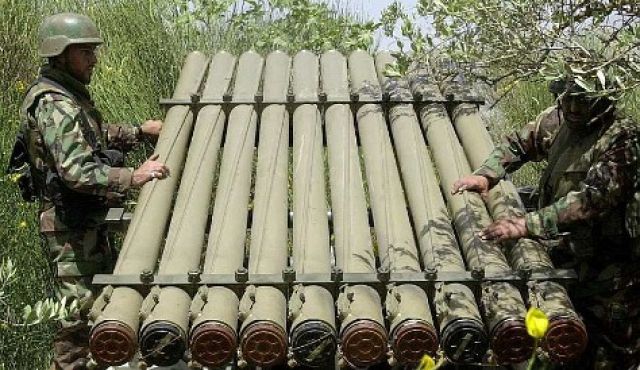
The Resistance is aware of everything that is being prepared in the usurping entity, as Hadi asserts, and therefore, "any military plans that "Israel" work to introduce into their war doctrine will not be of any use...
The issue has now become a foregone conclusion in favor of the resistance, "which focused its efforts during the past nine years on the development of its combat doctrine, and the methods it relies on, and to benefit from its experience in the Syrian battlefield, especially as a result of fighting alongside the Syrian Arab Army, which enabled it to gain wide-scale military expertise whereby its fighters have used in action various types of weapons, from rifles down to anti-tank missiles, as well as driving tanks, this alongside the expansion of the areas of specialization of the mujahid, and parallel to leading large numbers of forces - in the form of volunteer forces that provide support for the regular troops - and fighting alongside Syrian troops, which means that the mujahidin are acquiring expertise that transforms the resistance into an army that integrates irregular warfare with conventional methods".
Although the project of developing the resistance dates back to before 2006, yet during battles Hizbullah imposed tactics that facilitated the securing of military achievements and inflicting losses upon the enemy. For this reason, it developed two-levels of combat: the first is short-term, and it is based on strengthening the defensive lines of the resistance, beginning from the border with Palestine, up to villages north and south of the Litany, and the second is long-term, through the building up of its missile capabilities, which are aimed at draining the enemy in its internal front and paralyzing its movement, to such an extent that the enemy gets drawn into Lebanese territory, at which point it can be struck directly.
With regards to being continuously prepared, "the resistance works to elevate the individual and the mujahid in its ranks in order for him to be prepared for the time of direct confrontation with the Zionist soldiers, but the "Israeli" army focuses on strengthening the power of its fighter by making him dependent on material equipment and weapons alone, whereas Hizbullah works to refine its resistance fighter by consolidating his spiritual beliefs, determination, and jihad, in line with what Hajj Imad Mughniyeh, the commander of the two victories said: "the soul is the fundamental [element]".
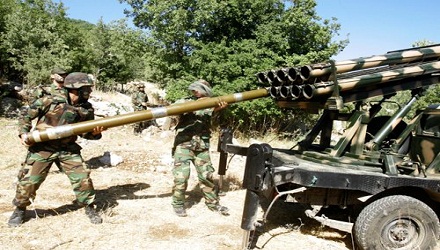
Hadi insists that "Resistance today is today in no need of clarifying its position in terms of its capabilities and its general situation, as it leaves the enemy to do the speculation. The enemy acknowledges that Hizbullah is now in a completely different situation compared to 2006, citing an "Israeli" finding that says that "the Resistance has rapidly developed as a result of gaining a deep understanding of the Israelis, and by building and improving its capabilities, and in particular, because it carefully studied the merits of the three wars waged by the enemy on the Gaza Strip, and on how to direct its troops on the ground in anticipation for a surprise ground advance that it might carry out".
The recurring concern of the "Israelis" is the scenario of the next war with Hizbullah. From the resistance's perspective, the Israelis are insisting on periodically reminding their people of the upcoming war, in order to maintain a state of fear, panic, and caution, to keep them away from a sense of tranquility and calm, and becoming acquainted with a "peace time situation". The resistance sees in this a clear example of its ability to deter the enemy and keep it worried, as Hadi explains.
The fingerprints of Hajj Imad Mughniyeh were present during all stages of the war, confirms Hadi, which manifested themselves in more than one surprise by the resistance, and in the secret, qualitative, and strategic plans in the battlefield, and in the development of the fighting apparatus of Hizbullah. He met the mujahidin more than once, especially at sites in which he personally worked to raise their war readiness, and he was constantly in direct contact with the entire field for the purpose of command and control, and directing the resistance fighters - even using his own voice sometimes. As for the martyr Hajj Hassan Lakkis, he had an active role during the war related to developments tied to the technical and technological aspects of the resistance.

Hadi is not fazed by the whole psychological war being waged against the resistance. He and his companions in jihad do not attach importance except to the enemy, saying that "our focus is solely on Jews and the "Israelis"". In addition, because nothing is louder than the voice of the rifle, Hadi and his companions do not see themselves anywhere but "on the battlefront ...we were created for this path...we love this path, it runs through our veins", and they are constantly in a state of preparedness, they do not rest, but are comfortable with their situation.
Discussing military issues does not cancel out the existence of humanitarian incidents that were determined by events in the battlefield... One day, a group of mujahidin were besieged in Bint Jbeil for three days without access to food and water. The health situation of one of its members deteriorated, the resistance leadership decided to withdraw him from the battle, and despite the difficulty of the task it succeeded.
Hadi took the place of this fighter, and when Hadi arrived he found out that the group had no food, he asked them, "Why did you not ask me to bring food on my way?"...his comrades replied "What was important was evacuating the ill mujahid". The situation remained as such, until the group was able to hide in a field wherein tomatoes grew, so the resistance fighters began picking four tomatoes a day to feed off, and they continued like this for a period of 12 days without any of them becoming martyred.
Source: Al-Ahed News, Translated and Edited by website team

